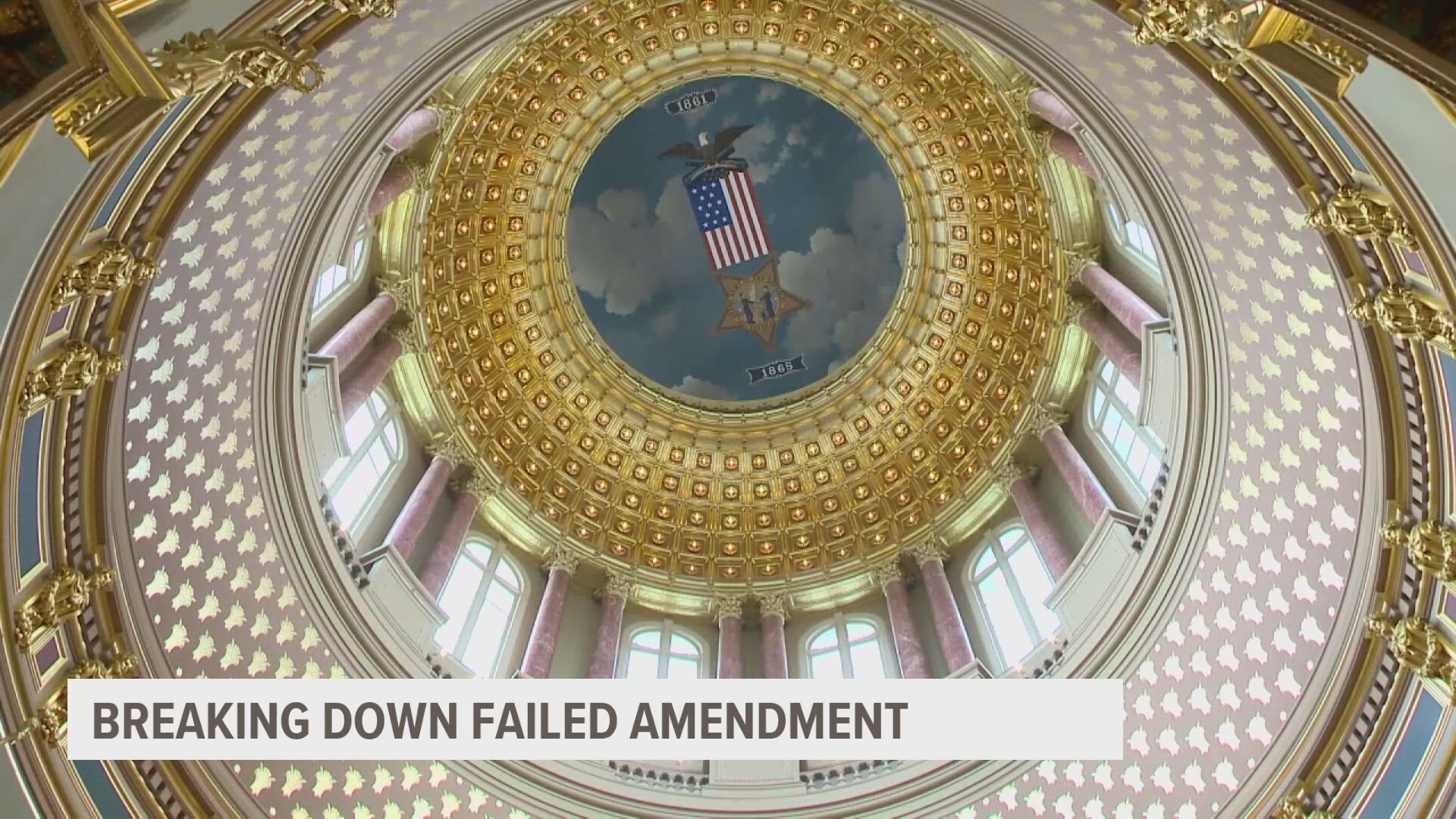DES MOINES, Iowa — Iowa's abortion regulations could change in a matter of days — and some advocates are concerned with what didn't make it into the final bill.
The state's newest abortion ban passed through the Iowa Legislature late Tuesday night and will be signed into law by Gov. Kim Reynolds on Friday, July 14.
The bill, a near carbon copy of a 2018 proposal, will prohibit abortions once "cardiac activity" is detected, which usually happens around six weeks.
All amendments in both chambers were presented by Democrats, and none passed.
While the bill does include exceptions in cases of rape, incest, medical emergency or lethal abnormalities in the fetus, some lawmakers wanted a longer list.
One amendment that was voted down, Senate File 3232, would have allowed children under 12 the right to an abortion.
"New abortion bans are likely to have a pronounced impact on the youngest pregnant girls, even in states with exemptions for rape an incest," said Rep. Molly Donahue, D-Linn County.
Republican Sen. Amy Sinclair of Wayne County claimed the bill already covered that population.
"Any child under the age of 12 found pregnant would had been the victim of statutory rape. Any child, Mr. President. The exception already exists in this law," Sinclair said.
Medical expert Dr. Payal Kohli said that pregnancies in children 12 or under are rare, but it's hard to say that all of them would be victims of statutory rape or incest due to a lack of data.
"There is absolutely no data in this population. So we, as physicians, really don't know much about what types of risks could occur," Kohli said.
Donahue mentioned data estimating more than 1,000 pregnancies happen in that age range each year. Typically, doctors choose the safety of the child over the pregnancy.
"We certainly don't allow many of these types of pregnancies to go to completion because of the psychological and physiological consequences," Kohli added.
For medical professionals, another set of potential problems lies ahead.
Health care officials told Local 5 that the strict ban could have repercussions on the state's already low numbers of obstetricians and gynecologists.
According to a report released by the State Department of Health and Human Services, there were about 4.5 OB-GYNs available per 10,000 women in the state, as of 2021. That translates to around 231 licensed OB-GYNs delivering babies that year.
But Des Moines OB-GYN Amy Bingaman said, once the bill becomes law, that number could drop even more.
"Pass this law and we will lose well-qualified providers to care for our community. Take away our ability to practice full-spectrum healthcare, and providers will choose to practice in another state and many will leave Iowa," Bingaman said.
On a national scale, a Kaiser Family Foundation survey from the end of June found that a majority of OB-GYNs believe the Dobbs decision in 2022 is linked to increased maternal deaths.
Large shares also believe that it has also worsened racial and ethnic inequities in maternal health and the ability to attract new OB-GYNs to the field.
The ban has already been challenged in court by the ACLU of Iowa, Planned Parenthood North Central States and the Emma Goldman Clinic.

